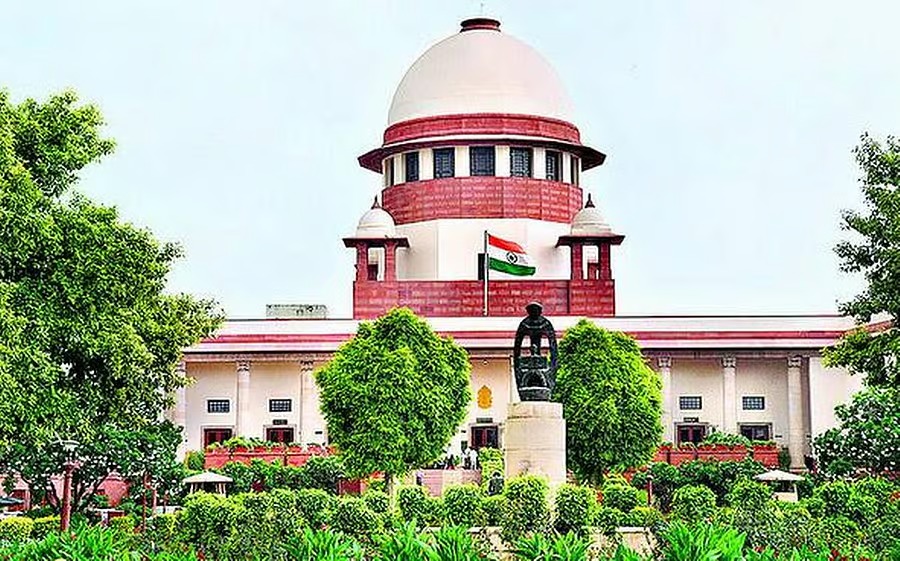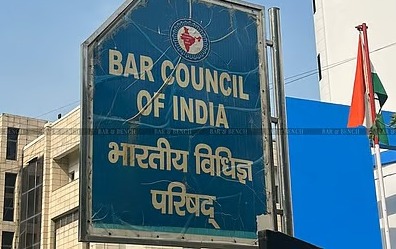Subhro Kamal Mukherjee, J.@mdashThis is to consider an application under Article 226 of the Constitution of India (hereinafter referred to as ''the writ petition'' in short), inter alia, challenging inaction on the part of Secretary, Metropolian Development Department, Government of West Bengal in not mutating the name of the writ Petitioner in respect of plot No. 143, Block-AD appertaining to Sector-I of Salt Lake City.
2. The brief facts leading to the filing of the said writ petition are summarised as under:
(a) Government of West Bengal granted a lease, under a registered deed of lease dated March 3, 1972, in favour of Lalmohan Bhattacharyay in respect of one plot of land measuring 3.0450 cottahs, be the land a little more or less, being plot No. 143 in Block AD in Sector-I of the northern salt lake city extension area. The said deed was registered, in Book No. 1, vol. 33, at pages 16 to 22, being No. 1517 for the year 1972, in the office of the Sub-Registrar, CossipurDumDum. The lease was executed against selami of Rs. 8373.75 (Rupees eight thousand three hundred seventy three and paise seventy five) only and annual rent of Rs. 1/- (Rupee one) only for the period of 999 years. One of the important clauses in the said lease deed was Clause 8, which runs as under: In case of lease in favour of two or more individual lessees jointly, any one of such joint lessees will have the right to transfer his/her share to the other co-share or co-sharers.
(b) On February 20, 1973 the Salt Lake Authority delivered possession of the said plot of land to the said lessee. The said lessee obtained a sanctioned plan from the Salt Lake Authority dated January 12, 1980 for construction of a residential unit, but he could not complete the construction due to circumstances beyond his control.
(c) The said lessee by a registered deed dated October 28, 1986 assigned and transferred his leasehold estate in the said plot of land in favour of the writ Petitioner. The said document was registered in volume No. 328, at pages 1 to 12, being No. 13094 for the year 1986.
(d) After execution of the said document dated October 28, 1980, the writ Petitioner submitted a representation to the Secretary, Metropolitan Development Department, Government of West Bengal requesting for mutation of her name in respect of the said plot of the land. A reminder was also issued on behalf of the writ Petitioner to the Respondent No. 2 requesting for mutation of her name in respect of the said plot of land. As the Respondents did not mutate the name of the writ Petitioner 1 in respect of the said plot of land, the writ Petitioner approached this Court.
3. Mr. Ranabir Mahapatra, learned advocate, appearing for the writ Petitioner, argued that there was no bona fide reason and justification on the part of the Respondents, particularly, Respondent No. 2, not to mutate the name of the writ Petitioner in respect of the said plot of land. Mr. Mahapatra draws my attention to the clauses of the said deed of lease dated March 3, 1972 and submitted that there was no prohibition on the part of the lessee to transfer his interest in the leasehold estate and as such the authorities concerned ought to have accepted the bona fide prayer of the writ Petitioner for mutation of her name in respect of the said plot of land. Mr. Mahapatra in support of his contentions cited the decisions in the cases of Prabir Kumar Kar v. State of West Bengal 1992(2) C.H.N. 289, Tarachand Dalmia v. State of West Bengal 1994(1) C.H.N. 15 and
4. Mr. Debasish Kargupta, learned advocate, appearing for the Respondents, however, submitted that as the transfer was made by the original lessee in favour of the writ Petitioner without obtaining permission or consent from the Respondents, the Respondents authorities are within their rights not to mutate the name of the writ Petitioner in respect of the said plot of land on the basis of the said registered document dated October 28, 1986. Mr. Kargupta submits that the Government Grants Act, 1895 applies to the lands in the salt lake area and the lessees are not entitled to transfer their leasehold interest to a third party without obtaining express permission from the government. Mr. Kargupta, in his turn, cites an unreported decision of a learned Judge of this Court dated June 25, 2001 in W.P. No. 6840 (W) of 2001 Mahadeo Prasad Agarwal and Ors. v. State of West Bengal, Mr. Kargupta, in his usual fairness, however, submits that the decisions cited by Mr. Mahapatra stipulate that there was no bar to mutate the name of the transferee in the absence of any provision restraining transfer and, further, submits that in the said decisions it has been laid down that the Government Grants Act, 1895 has no manner of application in respect of the leases executed by the Government with regard to the plots in salt lake city extension area. However, Mr. Kargupta heavily relied upon the said unreported decision and draws my attention to the observations of the learned single judge of this Court that application of Government Grants Act, 1895 in such properties could not be excluded even if the document of transfer was a registered one complying with all the formalities of the Registration Act, 1908 and the Indian Stamp Act, 1899.
5. Tarun Chatterjee J. in Tarachand Dalmia Supra observed that the Government Grants Act, 1895 was not applicable to the leases of present nature. His Lordship noticed that the lease deeds were executed for valuable consideration, that is, the Government accepted a lump sum selami for executing the aforesaid deeds of lease and the Government, also, agreed to accept nominal annual rents. Therefore, it was a contractual transaction for a monetary consideration. The Government Grants Act, 1895, therefore, could not be made applicable insofar as those leases are concerned because in all these leases, lessees have been permitted to construct building on their leasehold land and, therefore, the position of the Government was that of a landlord and, accordingly, the lands in question could not fall in the category of grant under the Government Grants Act, 1895.
6. Chatterjee J. in Prabir Kumar Kar Supra held that the Government Grants Act, 1895 was enacted to explain the Transfer of Property Act, 1882 and Sections 2 and 3 of the said Act of 1895 only recognised the unfettered right of the Government to impose conditions, prohibitions, limitations and restrictions relating to transfer of immovable properties in favour of a private individuals in government grants or transfers notwithstanding Section 10 of the Transfer of Property Act, 1882 or any other statutory law. Many condition, prohibition, restriction and limitation was imposed by the Government in a government grant or transfer concerning transfer of an immovable property that would continue to be effective notwithstanding Section 10 of the Transfer of Property Act, 1882 or any statutory law in force. If the lease deed itself did not contain any such clause prohibiting and/or restricting lessee from transferring the immovable property, it could not be said by virtue of Sections 2 and 3 of the Government Grants Act, 1895 such restriction, condition, prohibition and limitation could be imposed upon the lessee as if such clause restricting and prohibiting transfer has been imposed upon the lessee in the deed of lease. What Section 3 of the said Act contemplated was that whatever conditions, restrictions, prohibitions and limitations have been made in any government grant that would be effective as if the Transfer of Property Act, 1882 has not been passed so far as the transfer of immovable property by the Government was concerned. Chatterjee J. held, further, that there was no scope to hold that Sections 2 and 3 of the said Act of 1895 have any manner of application as the lease deeds executed by the Government in favour of the original lessees did not contain any restrictive clause in respect of the right of the lessee to transfer the said plots of land.
7. D.K. Seth J. in the said unreported decision, however, observed that the application of the Government Grants Act, 1895 could not be excluded even if the document of transfer was a registered one complying with all the formalities of the Registration Act, 1908 and the Indian Stamp Act, 1899. However, His Lordship observed that the ultimate findings or decisions of the said reported decisions could not be disagreed since by reasons of Section 3 of the Government Grants Act, 1895 such grants were to be governed by the tenor of the grant. If the grant did not contain any restriction on transfer in that event such transfer could not be prohibited.
8. I have carefully perused the clauses of the deed of lease dated March 3, 1972 and I do not think there is any restriction, prohibition or limitation imposed on lessee from transferring or assigning his leasehold interest in the said plot of land. The Clause 8, referred to herein above, cannot be construed as a prohibition, restriction or limitation to transfer. The lease was executed in favour of one individual person incorporation of the said clause in the present lease of deed was redundant.
9. A Division Bench of this Court in the case of Secretary of State for India in Council v. Lalmohan Chaudhuri I.L.A. 63 Cal. 523 held that the position of the Government in regard to ''khas mehal'' lands was that of an ordinary landlord, the Government occupying no higher position than that of a ''zemindar''. The Crown Grants Act, 1895 was an enactment relating to the grants from the crown authorising certain limitations and restrictions upon such grants made under its authority. A lease granted by a government officer in charge of a ''khas mehal'' could not fall within the category of the grants from the Crown as referred to in the Crown Grants Act, 1895 and, accordingly, Section 52 of the Transfer of Property Act, 1882 was clearly applicable.
10. The Supreme Court of Indian in the case of State of U.P. v. Zahoor Ahmad 1974(1) S.C.R. 344 held that mere fact that the State was the lessor would not by itself make it a government grant within the meaning of Government Grants Act, 1895.
11. My reading of the terms of the original deed of lease, in the light of the provisions of the Government Grants Act, 1895, is that there is no evidence in the present case in the character of the land or in the making of the lease or in the content of the lease to support the plea on behalf of the State that it was a grant within the meaning of the Government Grants Act, 1895. Moreover, where the lease deed executed by the Government in favour of the lessee does not contain any restrictive clause in respect of the right of the lessee to transfer his lease hold estate, there is no bar on the lessee to transfer or assign the leasehold estate to a third party.
12. Accordingly, the writ application is allowed. The Rule is made absolute. Respondents are directed to mutate the name of the writ Petitioner in respect of plot No. 143 in Block AD Sector-I in Salt Lake City in favour of the writ Petitioner within a month from the date of communication of this order.
13. No order as to costs.
14. Xerox certified copy of this order, if applied for, is to be supplied to the parties within a week from the date of making an application for the same.

